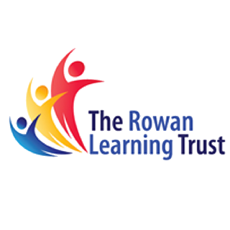Music
Mission Statement
To encourage and support an enjoyment and understanding of the performing arts through a wide range of experiences and opportunities across the curriculum. This will develop children’s self-confidence and belief in themselves providing a natural pathway for children to master skills that will equip them for life.
Music
Our music curriculum aims to provide all students with a high-quality music education which engages and inspires them to develop a life-long love of music, increases their self-confidence, creativity, and imagination, and provides opportunities for self-expression and a sense of personal achievement.
Music is…
Music is listening, composing and performing to create a finished musical product.
Intention
The intention of the Music Curriculum at Plantation Primary School is to help all children to feel that they are musical and to develop a life long love of music. Children will be taught the skills, knowledge and understanding that they need in order to become good performers, composers and listeners. They will be introduced to music from around the world and across generations.
Children will develop the skills of singing, playing instruments, improvising and composition as well as listening and responding to music. They will develop an understanding of the history and cultural context of music that they listen to.
Implementation
The Music scheme of work at Plantation Primary School takes a holistic approach to music, where the individual strands are woven together to create engaging learning experiences.
Performing
Listening
Composing
The History of Music
The inter-related dimensions of Music
It is based upon the Kapow Scheme of Work. KS1 completes 5 units a year, Year 3, 5 and 6 complete 3 units a year and Year 4 runs the Wider Opportunities Project where all children learn a musical instrument for a year.
During the course of the scheme of work, children will be taught how to sing fluently, play tuned and un-tuned instruments accurately and with control. They will be able to recognise and name the interrelated dimensions of music and use these elements within their own compositions. They will also get the opportunity in Year Four to learn two musical instruments; One woodwind instrument (Flute or Clarinet) for one term, and the Ukulele for two terms.
Our scheme of work follows a spiral curriculum model, where previous skills and knowledge are returned to and built upon. This reinforces and embeds skills that have been learnt already and allows them to be developed at a higher level. In each lesson, children will actively participate in musical activities drawn from a range of styles and traditions. They are ‘hands on’ and incorporate movement and dance elements to support musical understanding.
Music in Key Stage One is taught every week. In Year 3,5 and 6, it is taught half termly. Year Four learn their instruments weekly throughout the year.
Children have access to class sets of Glockenspiels and African Drums as well as a wide range of smaller untuned percussion instruments.
We are also using the listening scheme of work; "Musician of the Month." We complete this at least twice a month and it allow us to listening a range of composers from different cultures and time periods. We examine the history and background of the composers as well as listening to and analysing their music.
To supplement the children’s experiences in music, there is a choir for children in Year’s 3 -6. This ensemble performs regularly in local venues.
When we are in the main school, each Year Group performs at least once per year.
EYFS, Year 1 and 2 perform in a Christmas performance
Year 3 perform in an Easter Performance
Year 4 perform 3 times a year.
Year 5 perform in a Harvest performance
Year 6 perform in a Leaver’s assembly.
Impact
The impact of the Music Scheme of Work is assessed through the use of end points, based on the individual learning from each unit. Evidence of these being met is shared through the use of Video evidence and monitored by the music coordinator.
The impact of the scheme of work is that children will:
Be confident performers, composers and listeners and will be able to express themselves musically at and beyond school.
Show an appreciation and respect for a wide range of musical styles from around the world.
Understand the ways in which music can be written down to support performing and composing activities.
Demonstrate and articulate an enthusiasm for music and be able to identify their own musical preferences.
Meet the key stage expectations outlined in the national curriculum for music.
Long Term Music Plan

Music Vocabulary
Music Policy
Please click here to view our music policy.
(By clicking the above link you will be redirected to a website called TheSchoolBus)

